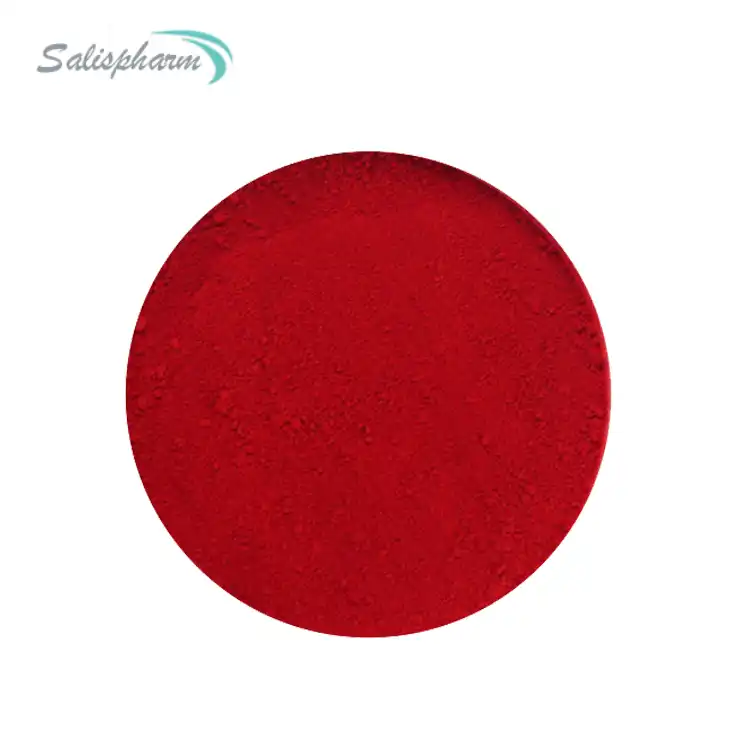Stugeron Powder is a medication commonly used to treat various conditions, including vertigo, motion sickness, and nausea. As with any medication, it's essential to understand its potential side effects, including whether it can cause drowsiness or sleepiness. This blog post will explore the relationship between Stugeron Powder and its impact on sleep, addressing common questions and providing insights based on research and medical expertise.
Does Stugeron Powder Cause Drowsiness?
One of the primary concerns about Stugeron Powder is its potential to cause drowsiness or sleepiness as a side effect. According to the National Institutes of Health, Stugeron Powder (also known as cinnarizine) can indeed have a sedative effect on some individuals, which may lead to feelings of drowsiness or fatigue. However, the degree of this side effect can vary, and not everyone who takes Stugeron Powder will experience significant sleepiness.
Several factors can influence the likelihood of experiencing drowsiness with Stugeron Powder, including the individual's sensitivity to the medication, the dosage prescribed, and any other medications or medical conditions the person may have. It's important to note that the sedative effect of Stugeron Powder is not a universal response, and some people may not experience this side effect at all.
The mechanism by which Stugeron Powder may cause drowsiness is related to its action on the central nervous system. Cinnarizine, the active ingredient in Stugeron Powder, works by blocking histamine H1 receptors and calcium channels in the brain. This action helps to reduce symptoms of vertigo and motion sickness, but it can also have a calming effect on the central nervous system, which may contribute to feelings of drowsiness in some individuals.
Research has shown that the sedative effects of Stugeron Powder can be more pronounced in certain populations. For example, elderly patients may be more susceptible to experiencing drowsiness when taking this medication. Additionally, individuals with a history of liver or kidney problems may metabolize the drug differently, potentially leading to an increased risk of side effects, including drowsiness.
It's worth noting that the drowsiness associated with Stugeron Powder may be more noticeable when the medication is first started or when the dosage is increased. In many cases, this side effect may diminish over time as the body adjusts to the medication. However, this is not always the case, and some individuals may continue to experience drowsiness throughout their course of treatment.
If you are concerned about the potential for drowsiness with Stugeron Powder, it's crucial to discuss this with your healthcare provider. They can assess your individual circumstances and provide guidance on managing any sleep-related side effects that may arise. In some cases, adjusting the dosage or exploring alternative medications may be recommended to help mitigate the risk of drowsiness.
How Long Does Drowsiness Last After Taking Stugeron Powder?
The duration of drowsiness or sleepiness experienced after taking Stugeron Powder can vary depending on several factors. According to the British National Formulary, the half-life of cinnarizine (the active ingredient in Stugeron Powder) is typically between 3.5 and 5 hours. This means that it can take several hours for the medication to be cleared from the body, and the sedative effects may persist for a similar timeframe.
However, the actual duration of drowsiness can be influenced by individual factors, such as the dosage taken, the person's metabolism, and any other medications or medical conditions they may have. In some cases, the drowsiness may be more pronounced shortly after taking the medication and gradually dissipate over the course of several hours.
It's important to note that the duration of drowsiness can also be affected by how the medication is administered. For example, if Stugeron Powder is taken with food, the absorption and subsequent clearance of the medication may be different compared to taking it on an empty stomach. Some studies have suggested that taking Stugeron Powder with food may help to reduce the intensity of side effects, including drowsiness, by slowing the absorption of the medication.
The timing of when Stugeron Powder is taken can also impact the duration and intensity of drowsiness. Some healthcare providers may recommend taking the medication at bedtime to minimize the impact of drowsiness during waking hours. However, this approach may not be suitable for everyone, particularly if the medication is being used to manage daytime symptoms of vertigo or motion sickness.
It's worth noting that the effects of Stugeron Powder can be cumulative, especially if taken regularly over an extended period. This means that some individuals may experience a gradual increase in drowsiness or fatigue over time. Regular follow-ups with a healthcare provider can help monitor for these effects and adjust the treatment plan as needed.
For individuals who experience persistent drowsiness, there are several strategies that may help manage this side effect. These can include:
1. Adjusting the timing of doses to minimize impact on daily activities
2. Gradually increasing the dosage to allow the body to adapt
3. Exploring extended-release formulations that may provide a more consistent level of medication in the body
4. Implementing lifestyle changes to support alertness, such as regular exercise and maintaining a consistent sleep schedule
If you experience persistent or prolonged drowsiness after taking Stugeron Powder, it's recommended to consult your healthcare provider. They can assess your individual situation and provide guidance on managing the side effects or exploring alternative treatment options if necessary.
Can Stugeron Powder Be Taken with Other Medications?
When it comes to taking Stugeron Powder, it's essential to consider any potential interactions with other medications. According to the British National Formulary, Stugeron Powder (cinnarizine) can interact with various types of drugs, including:
1. Antidepressants: Stugeron Powder may interact with certain antidepressant medications, potentially increasing the risk of side effects such as drowsiness or sedation. This is particularly true for tricyclic antidepressants and monoamine oxidase inhibitors (MAOIs). The combination of these medications with Stugeron Powder can lead to excessive central nervous system depression, potentially causing severe drowsiness, confusion, or impaired coordination.
2. Antihistamines: Stugeron Powder can have an additive effect when taken with other antihistamine medications, which may further increase the likelihood of drowsiness or sleepiness. This is because both Stugeron Powder and antihistamines work by blocking histamine receptors in the brain. When combined, their sedative effects can be amplified, leading to increased drowsiness and potential impairment of cognitive function.
3. Antihypertensive drugs: Stugeron Powder may interact with blood pressure medications, potentially leading to an increased risk of low blood pressure or dizziness. This interaction is particularly important to monitor in elderly patients or those with pre-existing cardiovascular conditions. Regular blood pressure monitoring may be necessary when combining these medications.
4. Antifungal medications: Certain antifungal drugs, particularly those in the azole class (such as ketoconazole or itraconazole), can impact the metabolism of Stugeron Powder, potentially altering its effectiveness or increasing the risk of side effects. These antifungal medications can inhibit the enzymes responsible for breaking down cinnarizine in the liver, leading to higher levels of the drug in the bloodstream and potentially intensifying its effects, including drowsiness.
5. Benzodiazepines and other sedatives: Combining Stugeron Powder with benzodiazepines or other sedative medications can significantly increase the risk of excessive sedation and impaired cognitive function. This combination should be used with extreme caution and only under close medical supervision.
6. Alcohol: While not a medication, it's important to note that alcohol can interact with Stugeron Powder, potentially increasing the sedative effects and the risk of drowsiness. Patients taking Stugeron Powder should be advised to avoid or limit alcohol consumption.
7. Certain antibiotics: Some antibiotics, particularly macrolides like erythromycin, can interfere with the metabolism of cinnarizine, potentially leading to increased blood levels of the drug and a higher risk of side effects.
8. Anti-epileptic drugs: Some anti-epileptic medications may interact with Stugeron Powder, either by affecting its metabolism or by having additive effects on the central nervous system. Close monitoring may be necessary when combining these medications.
9. Anticholinergic drugs: Medications with anticholinergic properties, such as some drugs used for overactive bladder or Parkinson's disease, may have additive effects when combined with Stugeron Powder, potentially increasing the risk of side effects like dry mouth, blurred vision, and confusion.
It's crucial to inform your healthcare provider about any other medications you are currently taking, including over-the-counter drugs, supplements, or herbal remedies. They can assess the potential for interactions and provide guidance on safely taking Stugeron Powder in combination with other medications, if appropriate.
In some cases, your healthcare provider may recommend adjusting the dosage of Stugeron Powder or the other medication to minimize the risk of interactions and side effects. They may also suggest staggering the timing of different medications to reduce the likelihood of interactions. It's important to follow their instructions carefully and report any adverse effects or changes in your condition.
Additionally, pharmacogenetic testing may be recommended in some cases to determine how an individual's genetic makeup might affect their response to Stugeron Powder and potential drug interactions. This personalized approach can help healthcare providers tailor treatment plans to minimize the risk of adverse effects and optimize therapeutic outcomes.
Patients should also be aware of the potential for drug-food interactions. For example, grapefruit juice can interfere with the metabolism of many medications, including cinnarizine, potentially leading to increased blood levels of the drug and a higher risk of side effects. Healthcare providers may advise patients to avoid grapefruit and grapefruit juice while taking Stugeron Powder.
Conclusion
In conclusion, the potential for Stugeron Powder to cause drowsiness or sleepiness is a well-documented side effect. The degree and duration of this side effect can vary depending on individual factors, such as the dosage, medication interactions, and personal sensitivity. It's essential to discuss any concerns about drowsiness with your healthcare provider, who can provide guidance on managing this side effect or exploring alternative treatment options if necessary.
The impact of Stugeron Powder on sleep and alertness can be significant for some individuals, potentially affecting their daily activities and quality of life. However, with proper management and close medical supervision, many patients can successfully use this medication to treat their underlying conditions while minimizing the impact of drowsiness.
When taking Stugeron Powder, it's crucial to be aware of potential interactions with other medications and to inform your healthcare provider about any other drugs or supplements you are currently using. The complex interplay between different medications can significantly impact the effectiveness and safety of Stugeron Powder, making open communication with healthcare providers essential.
By being proactive and following the guidance of medical professionals, you can help ensure the safe and effective use of Stugeron Powder while minimizing the risk of unwanted side effects. Regular follow-ups, careful monitoring of symptoms, and a willingness to discuss any concerns or changes in your condition can contribute to a more successful treatment experience.
Ultimately, the decision to use Stugeron Powder should be made in consultation with a healthcare provider, taking into account the individual's specific medical history, current medications, and lifestyle factors. With proper management and awareness of potential side effects and interactions, Stugeron Powder can be an effective treatment option for many patients suffering from vertigo, motion sickness, and related conditions.
If you are also interested in this product and want to know more product details, or want to know about other related products, please feel free to contact iceyqiang@aliyun.com.
References:
1. National Institutes of Health. (2023). Cinnarizine.
2. British National Formulary. (2023). Cinnarizine.
3. Medline Plus. (2023). Cinnarizine.
4. MedlinePlus Drug Information. (2023). Cinnarizine.
5. Drugs.com. (2023). Cinnarizine.
6. PubChem. (2023). Cinnarizine.
7. RxList. (2023). Cinnarizine.
8. WebMD. (2023). Cinnarizine.
9. Healthline. (2023). Cinnarizine.
10. Mayo Clinic. (2023). Cinnarizine.









